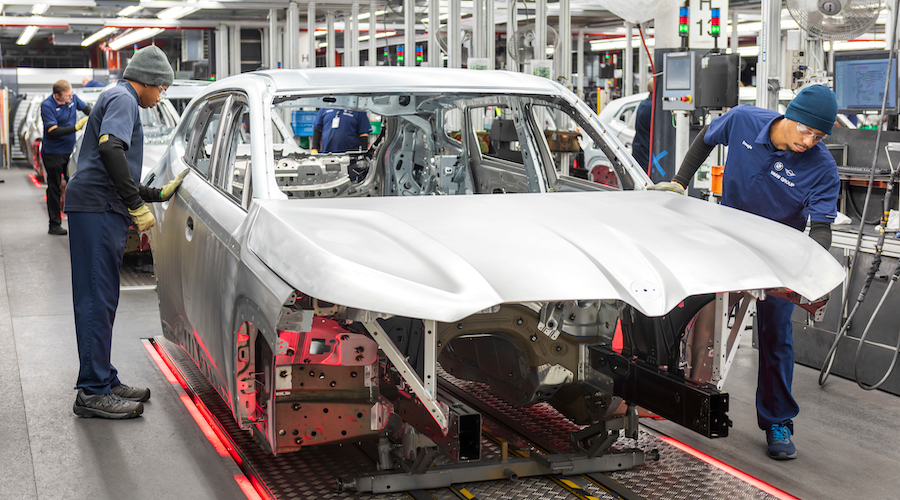Cecilia Jamasmie | February 21, 2023 |

BMW’s production plant in Spartanburg, South Carolina.
(Image courtesy of BMW.)
Mining giant Rio Tinto (ASX, LON: RIO) has agreed to supply BMW with aluminum it produces in Canada using hydroelectric power, in a move that will allow the German automaker to lower its carbon footprint.

The companies, which announced the memorandum of understanding (MOU) in separate statements, said the aluminum produced in Canada will go to BMW’s production plant in Spartanburg, South Carolina, starting in 2024.
While the partners did not indicate how much aluminum will be sent, they said the move could generate a reduction of up to 70% in CO2 emissions compared to the BMW Group’s benchmark for aluminum.
“By using innovative materials, we can reduce our vehicles’ carbon footprint,” said Joachim Post, BMW AG board member. “The agreement to supply low-carbon aluminium is based on several pillars: in addition to hydroelectric power and secondary material, we also want to lead the automotive industry by ramping up our use of aluminium with no direct CO2 emissions from the smelting process.”
The companies have also agreed to work on deploying Rio Tinto’s blockchain sustainability solution for aluminum, START, launched in 2021.
The program aims to provide supply chain traceability to customers and consumers with information about provenance and environmental, social, and governance (ESG) standards.
“As global demand for responsibly sourced materials continues to grow, automakers are increasingly looking to partner with suppliers who share their commitment to traceability and sustainability,” Rio Tinto chief commercial officer Alf Barrios said in the statement.
Mining giant Rio Tinto (ASX, LON: RIO) has agreed to supply BMW with aluminum it produces in Canada using hydroelectric power, in a move that will allow the German automaker to lower its carbon footprint.

The companies, which announced the memorandum of understanding (MOU) in separate statements, said the aluminum produced in Canada will go to BMW’s production plant in Spartanburg, South Carolina, starting in 2024.
While the partners did not indicate how much aluminum will be sent, they said the move could generate a reduction of up to 70% in CO2 emissions compared to the BMW Group’s benchmark for aluminum.
“By using innovative materials, we can reduce our vehicles’ carbon footprint,” said Joachim Post, BMW AG board member. “The agreement to supply low-carbon aluminium is based on several pillars: in addition to hydroelectric power and secondary material, we also want to lead the automotive industry by ramping up our use of aluminium with no direct CO2 emissions from the smelting process.”
The companies have also agreed to work on deploying Rio Tinto’s blockchain sustainability solution for aluminum, START, launched in 2021.
The program aims to provide supply chain traceability to customers and consumers with information about provenance and environmental, social, and governance (ESG) standards.
“As global demand for responsibly sourced materials continues to grow, automakers are increasingly looking to partner with suppliers who share their commitment to traceability and sustainability,” Rio Tinto chief commercial officer Alf Barrios said in the statement.
BMW Group plans to source aluminium from sustainable production in Canada from 2024. (Image courtesy of Rio Tinto.)
No comments:
Post a Comment